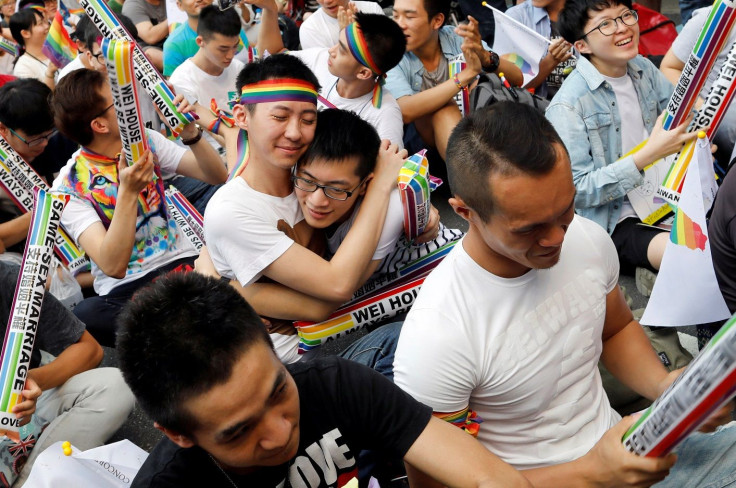Taiwan becomes first in Asia to allow same-sex marriage

Taiwan has become the first in Asia to make marriage equality constitutional. Its highest court legalised same-sex marriage on Wednesday, stomping down an age-old provision of its family laws.
The Constitutional Court ruled that a provision on the Civil Code violates people’s freedom of marriage, protected by Article 22, and the people’s right to equality, as guaranteed in Article 8 of the Constitution. The provision in question refers to Chapter 2 on Marriage of Part IV on Family of the Civil Code, which states two persons of the same sex are not allowed to “create a permanent union of intimate and exclusive nature for the committed purpose of managing a life together.”
The court has given the government two years to change marriage laws. If there are still no legislation actions in place after the deadline, LGBT couples will be allowed to register for marriage by submitting a document signed by two or more witnesses. Once registered, same-sex couples shall be accorded the “status of a legally recognised couple” and can enjoy the rights and bear the obligations of married couples.
In stating its reasons for legalising marriage equality, the court noted medical associations in saying that homosexuality is not a disease, and yet homosexuals have been treated less fairly by society. “Sexual orientation is an immutable characteristic that is resistant to change,” the ruling reads. “…Accordingly, in determining the constitutionality of different treatment based on sexual orientation, a heightened standard shall be applied.”
As for the argument that marriage should result in procreation, the court said that the Marriage Chapter does not set forth a couple’s capability to procreate a requirement for marriage. It also does not provide that a marriage must be void or voidable if either party is unable or unwilling to procreate after marriage.
“The fact that two persons of the same sex are incapable of natural procreation is the same as the result of two opposite-sex persons’ inability, in an objective sense, or unwillingness, in a subjective sense, to procreate,” it reads. “Disallowing two persons of the same sex to marry, for the sake of their inability to reproduce, is a different treatment having no apparent rational basis.”
The ruling, which was in response to the petitions filed by plaintiff Chia Wei Chi for more than three decades, was welcomed with cheers at a rally organised by Taiwan LGBT Family Rights Advocacy. According to local surveys, same-sex marriage is a generational issue. Younger people are largely supportive of it, while many older people are against it, China Post reports. The issue was also a key platform for President Tsai Ing-wen when he was campaigning in 2016.





















